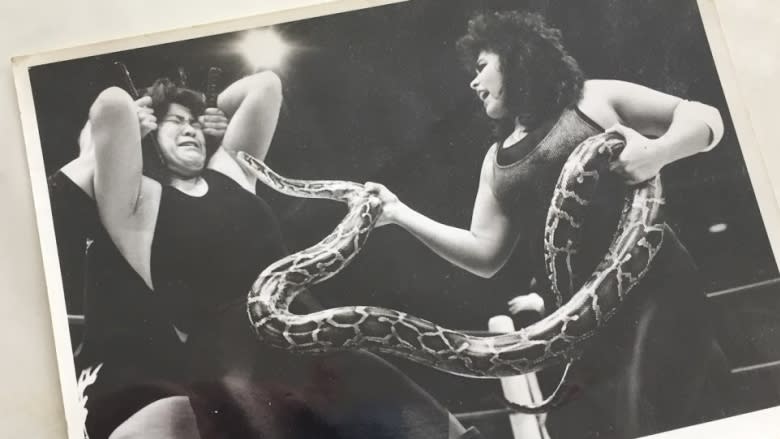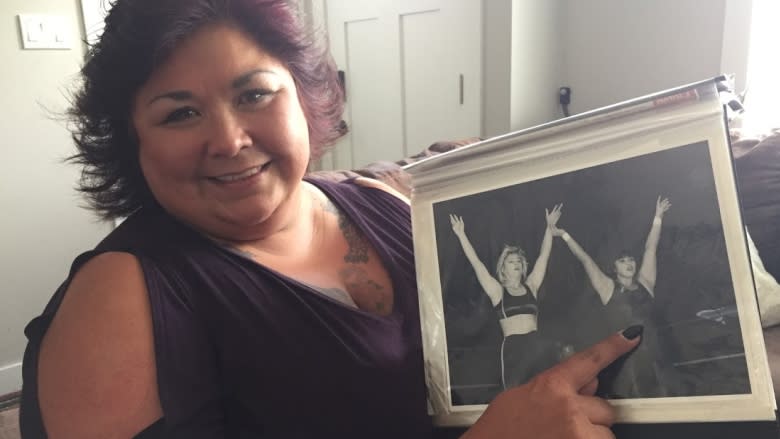Lake Babine First Nation woman honoured for 1980s 'superstar' wrestling persona
In the same summer that the Netflix series Glow casts a spotlight on the female pioneers of professional wrestling in the 1980s, a Prince George woman is to be honoured for her own work inside the ring.
"Delta" Dawn Murphy was one of a handful of women in the roster of British Columbia's All Star Wrestling, a promotion group that brought the dramatic world of professional wrestling to communities throughout the province.
That's how Murphy first discovered the sport, attending matches in Prince George with her father and grandfather when she was just a girl.
"I remember everyone hollering for their favourite wrestler," Murphy, 48, recalled in an interview. "And I thought 'you know, this is something that I really want to do.'"
'You've got a real star here'
As a teenager, Murphy attended a summer wrestling school in Surrey's Cloverdale neighbourhood where she caught the eye of wrestler-turned-promoter Jonathan "Fuzzy" Sayers.
"I said, 'I think you've got a real star here,'" Sayers said.
"She had it all. She was beautiful, she was a tremendous athlete, and she could wrestle. She just shot from breaking into the business to a superstar almost over night."
She adopted the stage name "Delta Dawn" drawing inspiration from the 1970s hit country song of the same name. She also happened to be living in Delta, B.C. in the Vancouver-area, at the time.
Murphy started touring small-town B.C. and helped bring more women into the circuit.
"I had to wrestle a woman," she laughed.
"Thankfully, the promoter did find another female wrestler which was a good match for me, and eventually grew more women into the sport."
Pioneering persona
She also incorporated her identity as a member of the Lake Babine First Nation into the act, entering the ring wearing a headdress given to her by a chief.
"A lot of people get upset when they see females with headdresses, but to be honoured [with] that and to be given that, I have so much pride," she said, adding it was important for her fans to know she was Indigenous.
"Showing that First Nations definitely are resilient people, and have everything in them to live their dreams."
Along with the headdress, she also became known for wearing Burmese pythons around her neck, sometimes keeping them with her while she fought, which added to the excitement — and the danger.
"There was a time that it [the snake] actually constricted one of the girls ... that was pretty scary," she said.
After a few years of wrestling in Canada, Murphy began travelling to Japan to take part in the women's divisions of All Japan Pro Wrestling and New Japan Pro Wrestling before retiring in 1994 to raise a family.
Though her wrestling days are behind her, Murphy looks back on that time fondly and is still in touch with the friends she made around the world.
On July 21, she'll be honoured at an All Star Wrestling reunion event in Surrey, B.C., an achievement that further cements Murphy's pride in her short but storied career.
"Not very many people are able to live their dream," she said. "I lived my dream and I did it well."
With files from Audrey McKinnon
For more stories from northern British Columbia, follow CBC Daybreak North on Facbeook.



